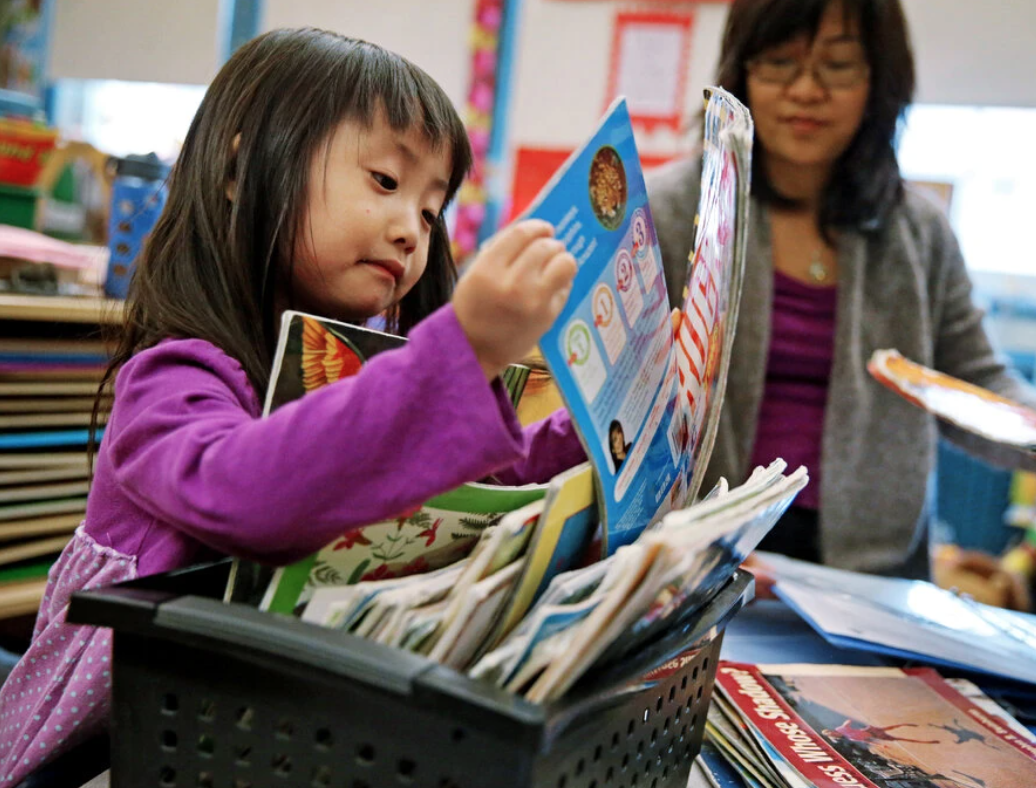Sol Hsiang recently co-authored a study published in Nature quantifying the social costs of carbon emissions by “characterizing how additional CO2 emissions today impact future economic outcomes through altering the climate.” Read the publication here.
David Card Awarded Nobel Prize in Economics
On October 11th, David Card was awarded the 2021 Nobel Prize in Economics along with Joshua Angrist and Guido Imbens. Card has pushed the boundaries of the field of labor economics for over three decades, including his landmark 1993 paper with Alan Krueger on a New Jersey minimum wage increase.
Read more about the award and read his 1993 paper here.
Solomon Hsiang on Climate Change Migration
Solomon Hsiang recently appeared in a segment of NPR’s Marketplace discussing how climate change crises such as rising sea-levels and water scarcity could potentially leave over 200 million people without homes in the next 30 years. However, as Hsiang highlights, “migration is tricky … because people have a lot of incentive to stay where they are.” Listen to the episode here.
Hilary Hoynes on the Benefits of Anti-Poverty Programs
Hilary Hoynes was recently featured in a NY Times article by Paul Krugman for her research on the impact of America’s anti-poverty programs on children living in poverty. Her findings showed that “unlike tax cuts for the rich, aid to poor children would largely pay for itself” purely in fiscal benefits alone, on top of the educational and health benefits these programs offer. To learn more, check out full article here.
Do Financial Concerns Make Workers Less Productive?
Research brief summarizing work by Supreet Kaur, Sendhil Mullainathan, Suanna Oh, and Frank Schilbach.
Hilary Hoynes on What the Expanded Child Tax Credit Means for American Families
Hilary Hoynes recently co-authored an article in Quartz on how the Biden administration’s expanded child tax credit will lift millions of children out of poverty. Hoynes also discusses research surrounding other long-term benefits of the program, including improved health and educational outcomes.
Jesse Rothstein on why people are dropping unemployment benefits before they run out
Jesse Rothstein recently appeared on NPR’s Marketplace podcast explaining why a large number of people with pandemic unemployment benefits were choosing to take up employment before their benefits ran out.
An Introduction to the Place-Based Policy Initiative
Inequality and Place: Promoting Opportunity and Growth through Place Based Policy is working to build a research ecosystem around our world-class faculty working on issues of local and regional development to contribute new evidence to U.S. anti-poverty and economic mobility strategies.
Hilary Hoynes featured in Ezra Klein column: What the Rich Don't Want to Admit About the Poor
Hilary Hoynes was quoted in an Ezra Klein opinion piece on what the debate over a guaranteed income reveals about how we prioritize worker power vs. low costs. In Klein’s words, “it is rising worker power, not continued poverty, that we treat as intolerable,” and argues that more robust income supports could eradicate poverty if that were a true priority.
Chris Walters on The Power of Pre-K
Chris Walters’ research on the longterm effects of universal pre-school was recently featured in the New York Times. The study showed that winners of the pre-school lottery in Boston had lower incarceration rates and higher rates of college enrollment, although evidence for better test scores was mixed.
Emmanuel Saez: California Should Pass a Small Tax on Big Wealth
Emmanuel Saez recently co-authored an op-ed in the LA Times on how the California tax system favors the ultra-rich and the importance of fixing it. He argues that while the “ordinary rich” pays their fair share in income taxes, California’s billionaires escape this by holding on to stock and not taking cash salaries.
Enrico Moretti on Remote Work and American Supercities
Enrico Moretti was recently interviewed in a Vox article on the future of American supercities post-pandemic. In the article, Moretti explains why people have historically tended to cluster geographically and why the benefits of agglomeration economies cannot fully be obtained from remote work.
How the North’s Response to the Great Migration Undermined Black Upward Mobility
California Housing and Homelessness in a Post-Covid Economy
Hilary Hoynes: Family Stipends Help Lift Children Out of Poverty
Childhood poverty has been linked to a number of developmental delays that can last well into adulthood and continue the cycle of poverty for generations. In a recent NPR article on the subject, O-Lab Director Hilary Hoynes explains how providing additional income support to low-income families and single mothers can improve long-term educational outcomes, reduce criminal activity, and improve the health of children growing up in poor households. Check out the full story here.
Ellora Derenoncourt: Raising the Minimum Wage is a Necessary Step in Achieving Equity for Black Workers
Ellora Derenoncourt was featured on NPR in a recent story on what life is like for Americans making under $15 an hour. Derenoncourt explains the history of the minimum wage in the U.S., including how one of the demands of the 1963 March on Washington was a $2 national minimum wage (over $15 today adjusted for inflation). She also draws upon her own research, which demonstrates the powerful effect that raising the minimum wage would have for Black workers. Check out the full story here.
Tax Uncertainty, Gig Worker Preferences, and the Impact of Outside Options on Wages
In Fall 2020, O-lab welcomed Sydnee Caldwell as one of its newest affiliates. To introduce her work, we have spotlighted a few of her recent projects, along with their potential implications for understanding the gig economy and the low-wage labor market.
Sydnee Caldwell joined the UC Berkeley faculty in July 2020 as an Assistant Professor in the Department of Economics and the Haas School of Business. Her appointment marks a return for Sydnee, who also attended Cal as an undergraduate, earning a dual bachelor’s degree in applied mathematics and economics in 2008.
Her recent research focuses on different forms of worker compensation and on how uncertainty around the Earned Income Tax Credit (EITC) affects behavior and outcomes for low-wage workers. Prior to returning to Berkeley as a faculty member, Sydnee served as a post-doctoral researcher at Microsoft Research New England. She earned her PhD in economics from MIT in 2019.
Tax Refund Uncertainty: Evidence and Welfare Implications (with Scott Nelson & Daniel Waldinger)
In this 2021 working paper, Caldwell and her colleagues focus on how low-income individuals understand and predict the amount of earnings they are likely to receive through the Earned Income Tax Credit (EITC). The EITC is one of the country’s most powerful anti-poverty programs, and for those low-income families who receive it, the credit can make up a substantial portion of their total annual income. Accurately anticipating the size of the EITC is therefore a crucial part of household budgeting and decision-making for these families. Due in part to the complexity of the tax code, however, it can be very difficult for filers to anticipate their tax liabilities and credits.
To understand the scale of this problem, as well as potential policy solutions, Caldwell and her colleagues used a combination of administrative tax data, credit bureau data, and survey data on individuals’ tax refund expectations. The data was collected through the Volunteer Income Tax Assistance (VITA) tax preparation centers in Boston to gather information about individuals’ expectations of their refund amounts. A low-income tax filer’s expectations were then compared to the actual refunds they received. When asked to predict their EITC refund amount within a $1,000 interval, the authors found that a quarter of individuals were “not certain at all” that their prediction would be correct.
Their research suggests that uncertainty impacts how people choose to consume and borrow; those who were more uncertain going into tax season tended to repay less of their credit card debt after they received the refund, for example. The refund uncertainty distorts recipients’ consumption-savings choices and causes a 10 percent loss in the the value of the EITC.
Uber vs Taxi: A driver’s Eye View (with Joshua Angrist & Jonathan Hall)
As the gig economy continues to grow, understanding worker compensation models and worker preferences will be critical to crafting fair rules and payment structures. In this paper in the American Economics Journal in Applied Economics (forthcoming 2021), Sydnee Caldwell and her co-authors partnered with Uber to compare drivers’ preferences under two different potential compensation models. In the first, drivers pay a fixed payment independent of their earnings; this compensation structure is the standard model for most conventional taxi drivers. In the second model, rideshare drivers pay a portion of their earnings per ride, a commission that Uber charges drivers for every ride drivers provide; this second model is the standard model for most “rideshare” programs. Caldwell and her colleagues find that a taxi-like model is (a) more efficient, and (b) results in higher net wages for drivers, since drivers keep any income they make in excess of the fixed payment. To explore if Uber drivers would prefer the taxi-like option, the authors partnered with Uber to offer drivers an opt-in taxi-like contract where they could pay a fixed payment instead of the usual Uber commission fee per ride. Sydnee says, “we find that drivers who would have earned higher wages under the taxi-like model don’t opt in. Our explanation for this is that drivers are loss averse.” In other words, drivers are averse to the scenario where they cannot make enough trips to cover the fixed payment and will give up the possibility of higher earnings in favor of greater flexibility to work as much or as little as they want. The authors find that drivers were often uncertain about how much they were going to work in a given week, which likely contributed to their aversion to the fixed payment since they were unsure about their ability to drive enough to cover the lump sum cost.
The results of this paper will be important in understanding and creating rules to govern “gig jobs” and other emerging labor markets where workers can choose how much to work. There is a serious ongoing policy debate about how gig workers should be classified---whether as independent contractors or as employees---and how they should be compensated. “When we started the project,” Sydnee said, “we expected to see that drivers who drive a relatively high amount of time would prefer the “taxi-like” scheme, and that drivers who drive a relatively low amount would not. However, we found that…these taxi-like schemes are perhaps less popular than you would expect, even among drivers who would have benefited a great deal.”
Outside Options, Bargaining, and Wages: Evidence From Coworker Networks (with Nikolaj Harmon)
In Caldwell’s job market paper, she sought to understand the extent to which changes outside of an individual's labor market impact the wages that they may earn at their current job. For example, would a change in a firm competitor’s demand for workers, or a change in their salary ranges, influence wages at one’s current employer?
Using employer/employee data from Denmark, Caldwell and her co-authors find that consistent with economic theory, demands for labor at one firm will induce greater firm-to-firm mobility and will drive up wages at competing firms. These increases were driven largely by information sharing, and were most pronounced among those in the top half of the skills distribution. Access to information about increases in demand for workers at one firm is critical for workers in another firm to leverage the information and increase their wages at their current firm. An interesting finding of this paper - and one which Sydnee hopes to explore further in the future - was that within each skill group, women benefit less than men from information about outside options. Caldwell said there are many reasons why women might be getting a smaller bump from outside options, including the potential that they are less inclined to negotiate or are punished for negotiating. These options are the subject of a growing literature in economics, and questions Caldwell hopes to look into more in the future.
How Place-Based Climate Policy Can Reduce Climate Emissions
How does a community’s built environment and access to public goods impact their carbon emissions? How does income inequality impact peoples’ options for reducing carbon emissions? Fifth-year PhD candidate and O-Lab fellow Eva Lyubich is exploring these questions in an ongoing set of projects focused on how place-based climate strategies might help curb climate emissions. Eva’s research interests lie at the intersection of climate policy, inequality, and public goods provisions, and she is particularly focused on finding viable solutions to mitigate the climate crisis.
In ongoing work, Eva is studying whether place-based climate policies - climate policies focused on local investments in climate mitigation solutions - would be more effective than carbon taxes at reducing carbon emissions. Economists typically suggest that carbon taxes force people to privately account for the harm they contribute to globally. However, people’s ability to substitute away from dirty energy consumption is highly dependent on alternatives available to them on a local level. “If certain public goods investments have the capacity to reduce carbon emissions for many people all at once, then it may be more efficient to make investments in public goods rather than relying on individuals to make private investments on their own,” she said. For example, policies that change the built environment of a community, such as making it more walkable, bikeable, or investing in public transit reduce carbon emissions while positively benefiting a community by increasing the available transportation options.
Eva’s motivation for this paper came from “the idea that individuals are constrained by the choices they can make and could therefore be limited in their ability to reduce their individual carbon footprints.” A few of the questions behind this research agenda include: How do characteristics of places constrain our ability to reduce emissions? Would people change their behaviors if we changed the characteristics of a place? Do people drive because they don’t have access to high quality public transit or do they like driving and will they drive everywhere regardless of if they have access to a public transit system? Eva is trying to estimate what share of geographic variation in carbon emissions is driven by characteristics and policies governing the places people live in versus differences in people’s preferences.
“Individuals are constrained by the choices they can make and could therefore be limited in their ability to reduce their individual carbon footprints.
In this project, Eva estimates what share of emissions are place-based using what is known as a mover design, in which she studies how people’s emissions change as they move to different places. She hopes to use these estimates to inform what type of investments and what geographic locations have the highest benefit to cost ratio in reducing overall emissions. According to Eva, “this research has the potential to help local, state, and federal governments determine where we should be investing to make the highest emissions reductions.” An example of an existing program that is making place-based climate investments is the California Climate Investments initiative, which uses cap-and-trade revenues to fund community-based projects for reducing greenhouse gas emissions, particularly in disadvantaged communities.
“This research has the potential to help local, state, and federal governments determine where we should be investing to make the highest emissions reductions.
More broadly, Eva plans to study the consequences of income inequality on our collective ability to address the climate crisis. The availability of a community’s options to reduce their carbon footprint is highly impacted by the distribution of public goods, which is largely dependent on the income distributions of a community. Income inequality and mitigating the climate crisis go hand in hand. “In a future project, I hope to study how the distributions of public goods and income inequality intersect with climate policy effectiveness. Does income inequality across communities prevent climate policy from being successful?” Eva’s research projects have great potential to influence social policies, climate policies, and secure our planet’s future.
Zach Bleemer: Banning Affirmative Action Has Immediate Effects on College Applications
This fall, 57% of California voters voted to reject the restoration of affirmative action in college admissions. O-Lab fellow Zach Bleemer’s research shows that the ban on affirmative action in California has had the effect of deterring Black and Latino students from applying to college. The NY Times cited this work in an October editorial. Read the Times piece here, and take a look at Bleemer’s research!
Jesse Rothstein: Graduates Starting Their Careers in a Recession will Face Long-Term Economic Scarring
Jesse Rothstein’s research on the long-term economic scarring of the Great Recession was cited in a Washington Post column by Catherine Rampell. Rampell argues that, without significant new economic stimulus to mitigate the effects of the recession, today’s college grads will face long-term negative impacts on earnings, health, and a range of other outcomes.
Check out the Op-Ed here.
Read more of Rothstein’s research on economic scarring here.




















